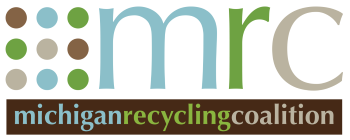Michigan Agriculture/Greenhouse and Marina Film Plastic Recycling Program
Michigan Recycling Coalition is developing a program in partnership with the Department of Environment, Great Lakes, and Energy to recycle high and low density polyethylene film plastics from Michigan's farms, greenhouses, and marinas. Shrink film is used most commonly to insulate and protect boats for winter storage and for a variety of agricultural uses including greenhouse and hoop house covers, mulch film, drip tape, bale covers, and silage bags.
Michigan is a unique location for the production of these plastic films. As a Great Lakes state, we have one of the most prosperous boating industries, with hundreds of marinas along Lake Michigan and Lake Huron. Our land and soil are some of our greatest commodities, creating a 100-billion-dollar economy with over 47,000 farms. Huge quantities of waste film are being produced in Michigan every day. The average Michigan dairy herd has 300 cows, and the dairy industry estimates that on average, 15-20 pounds of all types of waste plastics are used per cow per year. This material is not biodegradable and contributes significant mass to our landfills. Michigan currently recycles at a rate of 15% while the national average is 35%. This program will benefit farmers, growers, and boaters and contribute to maintaining the beauty and cleanliness of our state.
The Michigan Recycling Coalition has partnered with Dr. Shrink to provide a recycled bag made of the same plastic used to make shrink wrap. You can purchase one of Dr. Shrink's EZ-Fill bags here. There will be a charge per EZ-Fill bag to collect, transport, bale, and recycle your plastic wrap. This is cheaper than having the materials taken to the landfill. After purchasing the bag, you can sign up for pick-up using this form: More options for program participation will be coming soon!
BOAT WRAP GUIDE:
Preparing your boat wrap in the Spring has never been easier!
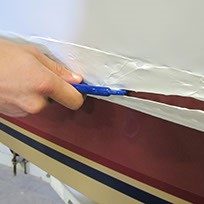
STEP ONE: Cut the shrink wrap just above the perimeter band, going around the entire boat.
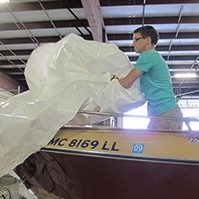
STEP TWO: After removing all vents, zipper doors, strapping, and buckles, begin removing your shrink wrap cover. Try to keep the shrink wrap as clean as possible.
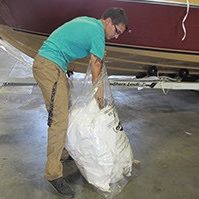
STEP THREE: Stuff your EZ-Fill Bag with your boat wrap. If storing outside, turn sealed bag upside down until pickup and do not overstuff bags - make sure to use supplied closure device to seal the bag.
PLEASE NOTE:
- The bags must ONLY contain shrink wrap covers. Make sure to exclude all strapping, buckles, vents, and other contaminants from the bag.
- Shrink wrap must remain clean and dry.
- Pickups will be conducted July-August.
AGRICULTURE AND GREENHOUSE FILM PLASTIC
KEEP IT CLEAN Please bring plastic with minimal debris (soil, rocks, silage, etc.) and follow material preparation requirements. Material must be dry when transported to the site. This aids in easier handling of the material and a lower recovery fee for you.
RECOVERY FEE There is an $0.08/pound recovery fee charged to pay for program costs.
Sunfield Facility: Will send an invoice that is payable by check.
Edge Materials: Will accept credit card or check on-site at the time of drop-off.
THANK YOU!
The Agricultural Plastic Film Recycling Pilot Program is a partnership of the Department of the Environment, Great Lakes, and Energy, Michigan Recycling Coalition, & Michigan Farm Bureau.
HOW TO PARTICIPATE:
STEP 1 : Read and understand the material requirements and preparation instructions. Our accepted materials include silage/ grain bags, bunker silo covers, greenhouse covers, stretch wrap/pallet wrap, pallet covers, drip tape and bin liners. Find specific information about this at our "Accepted Materials and Material Preparation" link.
STEP 2 : Drop off materials at Edge Materials Management. Monday - Thursday, 8 AM - 4 PM
Address: 4215 Airpark Drive; Standish, MI 48658
Directions: Turn south on Airpark Drive at the east end of the Standish Hospital, follow Airpark drive approximately ½ mile to Edge, 4215 Airpark Dr. Blue building, use East entrance overhead door.
STEP 3 : Pay a weight based fee for material. Note and record the weight of your material, calculated by waste management staff, for your personal records. Review and sign the material record form.
TYPES OF AG FILM PLASTIC ACCEPTED
- Βαle Wrap
- Silage/Grain Bags
- Bunker Cover/Tarp
- Drip Tape
- Mulch Film
- Clear Pallet/Stretch Wrap
- Bin Liners
- Pallet Covers
- Greenhouse Film
- Pond Liners
Our first pilot program launched on July 14th at the Sunfield County Recycling Facility. Click the button below to find more information on the Eaton County Resource Recovery website on how to participate, FAQ's, appointments, pricing, and materials accepted. Please note that program participation will vary site to site.
THANK YOU! Please visit Eaton County’s website to learn how to make an appointment. We appreciate your interest in our agricultural film plastic recycling program!
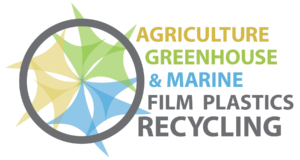
FACILITY REQUIREMENTS
- Adequate space for at least 40 furnished bales. Approximately 500-2,500 square feet will guarantee enough room to stack bales and accommodate materials of different types of plastic
- Sufficient space so that bales are not moved time and again to accommodate other stored materials
- Flat, dry surface to stack bales - e.g., a concrete pad or packed earth barn floor
- If there is a chance the ground will get wet or if the ground surface is gravel or grit, then a supply of pallets on hand
- Baling equipment that can condense 1,000 lbs. of material.
- Roof-cover is great to keep bales out of the sun and rain/snow, but is not necessary. Bales can be covered with a tarp
- Scales to weigh the bales upon delivery
- Restricted access with staff who know the quality standards and thus can accept the bales upon delivery
- A loading dock (or loading ramp) or another combination of equipment to load bales into an enclosed trailer, maneuver the bales within the trailer, and stack the bales two-high. The equipment combinations could be, for example, a loading dock and a skid steer/fork lift or a skid steer/fork lift and a pallet jack
- Staff or contract labor to operate the equipment
- Permission to store bales for the duration of time needed to amass a full tractor-trailer load. A full load is about 40 bales, all roughly 1,000 pounds in weight
MAKING THE PROGRAM VIABLE FOR OUR PARTNERS
- Every step of the recycling stream is set up knowing that there is scarcity in the recycling marketplace for this material. It currently costs more to collect, transport, and process these materials than they have value. In order to make this program cost-effective, we want to organize collection to generate mass volumes of plastic for the purpose of recycling. As a nonprofit 501(c)(3) organization, we are encouraging every facility and partner along our stream to consider that this will not be a revenue generating process.
- Michigan Recycling Coalition will be coordinating a processing fee on the basis of material volume and offering compensation to processing facilities for their overhead and operational costs.
PARTNERS:
Interested in helping us grow a robust and impactful program? We can use partners like you! A fact sheet is provided above for recycling facilities interested in processing film plastic before it is picked up for end market use.
Our current partners include: Bay Area Recycling for Charities, Dr. Shrink, Eaton County, Edge Materials Management, EGLE, Emmet County Recycling, and Grove Recycling.
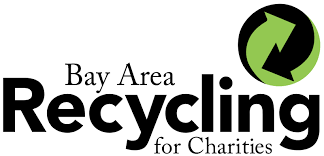
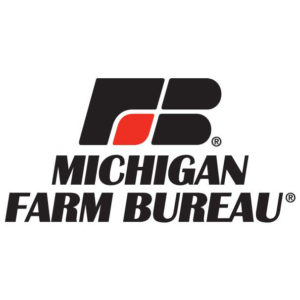

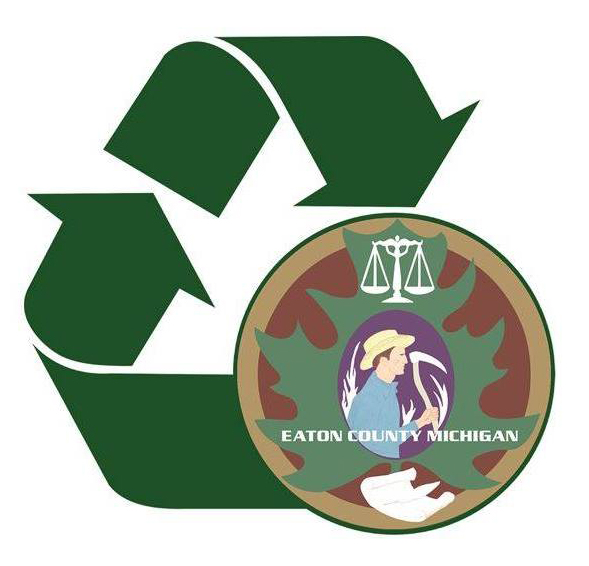
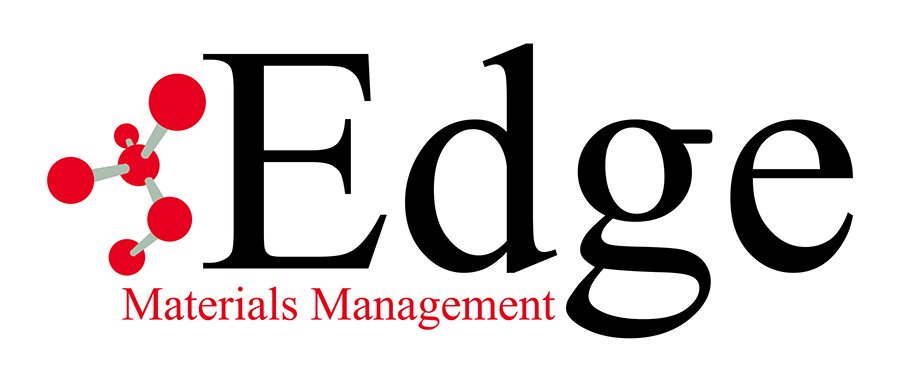
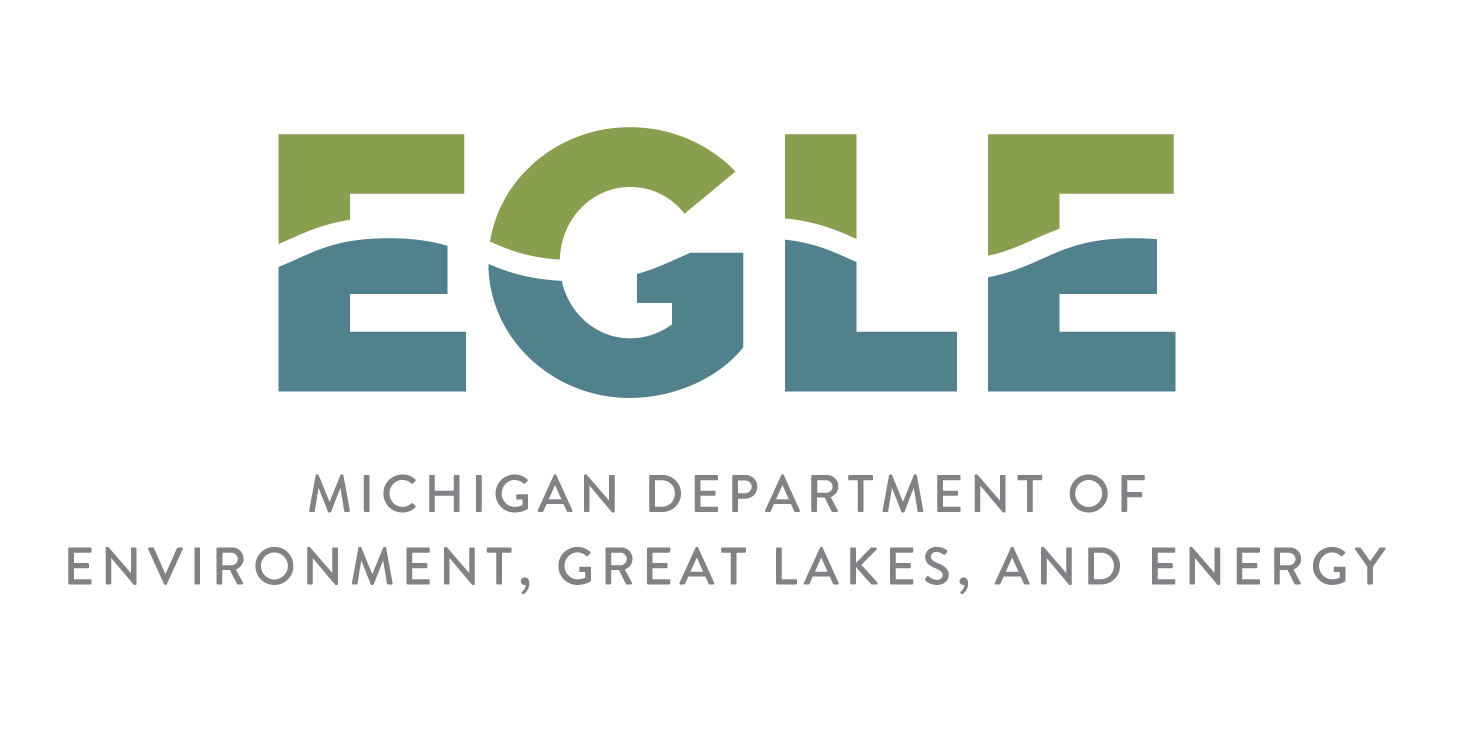
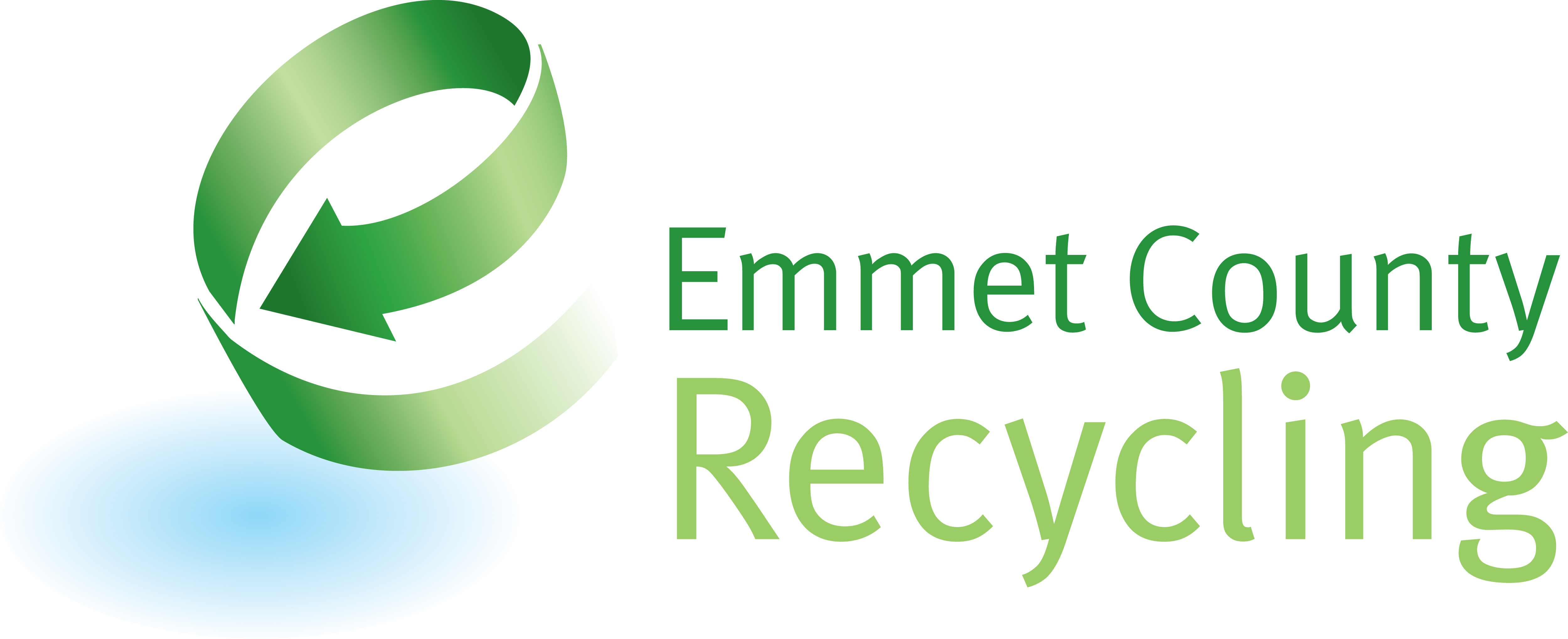
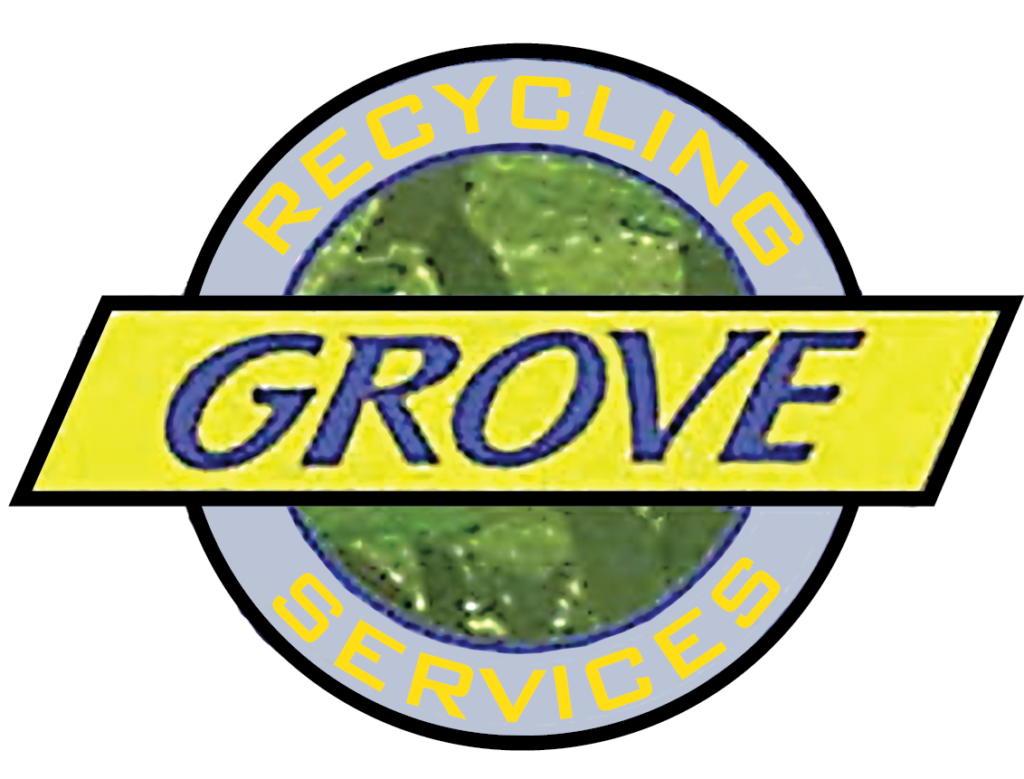
CONTACT:
Katie Fournier ┃Project Coordinator ┃Michigan Recycling Coalition ┃P: 989.780.7456 ┃
E: kfournier@michiganrecycles.org
